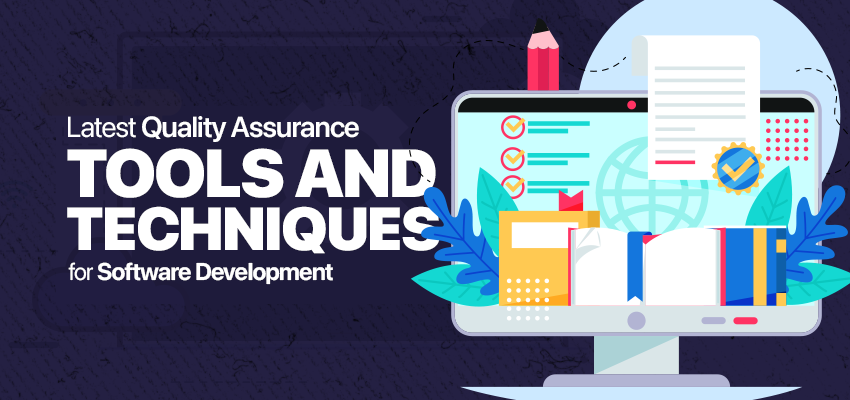Latest Quality Assurance tools and techniques for Software Development

Quality Assurance is an important part of software development and it’s ensuring the quality, functionality, performance and reliability of the software products. Quality Assurance includes a variety of testing tools and methods in order to test, verify and improve software quality throughout the software development lifecycle. Here are some of the latest software development Quality Assurance tools and techniques and how they can help to deliver better and more efficient quality bug free software products.
Automation Testing
Automation testing is the use of software tools to perform pretest problems, compare expected results with actual results, and report problems or defects. Automated testing saves time, reduces human error and improves testing performance. Some of the most accurate testing tools for software development are Selenium, Appium, Cypress, TestComplete and Katalon Studio. This tool supports various types of testing such as web, mobile, desktop, API and performance testing and can be integrated with other tools and frameworks such as Jenkins, Cucumber and TestNG.
Continues Integration and Delivery
Continuous Integration (CI) and Continuous Delivery (CD) are practices that allow software developers to collaboratively change code frequently and deliver software updates to customers faster and more reliably. CI and CD include various tools and methods such as version control, code review, build automation, test automation, deployment automation, and monitoring. Some of the latest CI and CD software development tools are GitHub Actions, GitLab CI/CD, Azure DevOps, CircleCI, and Travis CI. These tools help software teams collaborate, work, and streamline software development processes.
Cloud-Based Testing
Cloud-based testing uses cloud computing applications to perform software testing. Cloud-based testing can provide many benefits such as scalability, flexibility, cost-effectiveness and accessibility. Cloud-based testing also allows software teams to test their software across multiple platforms, devices, browsers, and locations. Some of the latest cloud-based software development testing tools include Sauce Labs, BrowserStack, LambdaTest, AWS Device Farm, and Google Cloud Test Lab. Cloud-based tool provides a cloud-based testing environment for various types of testing such as virtual machines, emulators, simulators, and real equipment.
Artificial Intelligent and Machine Learning
Artificial intelligence (AI) and machine learning (ML) are technologies that enable software to learn from data and perform tasks that normally require human intelligence. Artificial intelligence and machine learning can improve software testing by automating tasks, creating test cases, analyzing results, and detecting defects. Some of the latest AI and machine learning tools and techniques for software testing include Testim, Applitools, ReTest, Mabl, and Functionize. These tools and methods use artificial intelligence and machine learning techniques such as natural language processing, computer vision, deep learning, and additive learning to improve the quality and performance of software testing efforts.
Behavior-Driven Development
Behavior-driven development (BDD) is a software development method that focuses on software behavior from the user's perspective. BDD involves writing user stories, scenarios, and acceptance criteria in a language that both developers and stakeholders can understand. BDD also involves the use of tools and techniques that can transform this natural language content into a workable test. Some of the newer BDD tools and frameworks for software development include Cucumber, SpecFlow, Behave, JBhave, and Serenity BDD. These tools and techniques help software teams align their software development with user needs and expectations.
Test-Driven Development
Test-driven development (TDD) is a software development method that involves writing test cases before writing code using functional tasks. TDD follows this cycle: Write the test that fail, write the minimum code that passes the test, and revise the code to improve its quality. TDD helps software developers write cleaner, more reliable, and more manageable software. Some of the latest TDD tools and frameworks for software development are JUnit, NUnit, PyTest, Mocha, and Jasmine. These tools and techniques help software developers write and program, integrate and test their code.